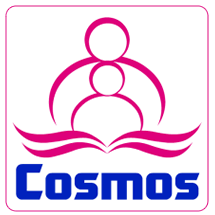THE USE OF CULTURE ENVIRONMENTAL POTENTIAL IN LEARNING AT ELEMENTARY SCHOOL FOR DEVELOPING STUDENTS HARACTER
DOI:
https://doi.org/10.53555/eijhss.v2i1.13Keywords:
Environmental potential of culture, learning, and character educationAbstract
Student learning passion can be built through learning tasks are meaningful in the lives of students. The context of the environment is an important factor in developing teaching and learning activities. In society, there is a number of valuable cultural potential that is functional for student life. The potential wealth has not been used optimally in the world of education. Environmental education seeks not only emphasizes the doctrine and habituation. Environmental education seeks to apply the principles and methodology towards the character formation of students through an integrated curriculum developed at the school. Learning to use the environment is more contextual and more beneficial to the lives of students in the community. However, in general, teachers have not been made of planning, implementation, and evaluation of learning exploit the potential of the environment. This happens because the teachers do not fully understand the process of learning through observation environment by utilizing the potential of the cultural environment.
References
. Adimihardja, Kusnaka. 1993. Kebudayaan dan Lingkungan: Studi Bibliografi. Bandung: Ilham Jaya.
. Bogdan, Robert dan Biklen, Sani Knopp. 1998. Qualitative Research for Education: An Introduction to Theory and Methods. Boston: Allyn and Bacon, Inc.
. Creswell, John W. 2009. Research Design: Qualitative, Quantitative, and Mixed Approaches. Third Edition. Los Angelos: SAGE Publications.
. Creswell, John W. 2012. Educational Research: Planning, Conducting, and Evaluating Quantitative and Qualitative Research. Fourth Edition. Boston: Pearson.
. Denzin, Norman K., (ed.). 2005. The Sage Handbook of Qualitative Research (3rd ed.). Thousand Oaks, CA: Sage.
. Direktorat Tenaga Kependidikan Direktorat Jenderal Peningkatan Mutu Pendidik dan Tenaga Kependidikan Departemen Pendidikan Nasional. 2007. Pengembangan Budaya dan Iklim Pembelajaran di Sekolah (materi diklat pembinaan kompetensi calon kepala sekolah/kepala sekolah). Jakarta: Depdiknas.
. Forde, CD. 1963. Habitat, economy, and society. New York: Dutton.
. Gagne, Robert M., Driscoll, Marcy Parkins. 1989. Essentials of learning for instructional. Florida: State University.
. Gagne, R. M. & Briggs, L. J. 1992. Principles of instructional design. Harcourt: Harcourt Brace Jovanovich.
. Geertz, C. 1973. The impact of the concept of culture on the concept of man, in The interpretation of cultures: Selected Essays. New York: Basic Books. 126-141.
. Hadiyanta, Nur. 2013. Penerapan Model Pembelajaran Contextual Teaching and Learning (CTL) untuk Meningkatkan Hasil Belajar PKN, dalam Jurnal Kependidikan, Volume 43, Nomor 1, Mei 2013, halaman 32--38.
. Hamalik, Oemar. 2001. Proses Belajar Mengajar. Jakarta: Bumi Aksara.
. Keesing, F.M & R.M Keesing. 1971. New perspectives in cultural anthropology. Chicago: Holt, Rinehart, and Winston.
. Kementrian Kebudayaan dan Pariwisata. 2004. Kearifan Lokal di Lingkungan Masyarakat Using Banyuwangi Jawa Timur. Yogyakarta: Proyek Pemanfaatan Kebudayaan Daerah.
. Koentjaraningrat. 1981. Kebudayaan Jawa. Jakarta: Balai Pustaka.
. Morrison, Gary R., Steven M. Ross, & Jerrold E. Kemp. (2004). Design effective instruction, (4th Ed.). New York: John Wiley & Sons.
. Mulyasa, E. 2007. Menjadi Guru Profesional Menciptakan Pembelajaran Kreatif dan Menyenangkan. Bandung: Rosda.
. Niron, M.D., Budiningsih, C.A., dan Pujiriyanto. 2013. Rujukan Integratif dalam Pelaksanaan Pendidikan Karakter di Sekolah Dasar, dalam Jurnal Kependidikan, Volume 43, Nomor 1, Mei 2013, halaman 19—31.
. Pengertian perencanaan pembelajaran. http://alansviking.blogspot.com/2009/12/ pengertianperencanaan-pembelajaran.html, diakses 29 September 2011)
. Rusyana, Yus, dkk. 1988. Pandangan Hidup Orang Sunda: Seperti Tercermin dalam Kehidupan Masyarakat Dewasa Ini. Jakarta: Dep. P&K Direktorat Jenderal Kebudayaan. Bagian Proyek Penelitian dan Pengkajian Kebudayaan Sunda.
. Sagala, Syaiful. 2003. Konsep dan Makna Pembelajaran. Bandung : Alfabeta
. Sanjaya, Wina. 2009. Perencanaan dan Desain Sistem Pembelajaran. Jakarta : Kencana
. Snijders, Adelbert. 2004. Antropologi Filsafat: Manusia Paradoks dan Seruan. Jogyakarta: Kanisius.
. Spradley, J.P. 1972. Foundations of Cultural Knowledge, in Culture and cognition. Rules, maps, and plans. San Francisco: Chandler 2-38.
. Sujana, Nana. 1996. Penilaian Hasil Proses Belajar Mengajar. Bandung: Rosdakarya.
. Suparlan, Parsudi. 1980. Manusia, Kebudayaan dan Lingkungannya Perspektif Antropologi Budaya. Fakultas Sastra: Universitas Indonesia.
Downloads
Published
Issue
Section
License
Copyright (c) 2017 EPH - International Journal of Humanities and Social Science (ISSN: 2208-2174)

This work is licensed under a Creative Commons Attribution-NonCommercial-NoDerivatives 4.0 International License.







